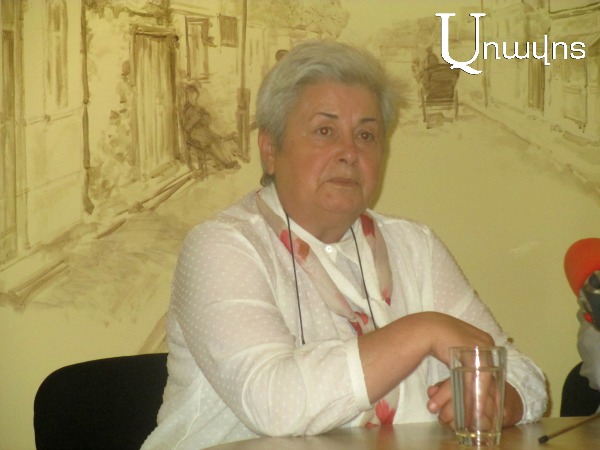“It’s not that justice has become a key tool and practice in international structures. There are many subsurface issues there”, ethnographer Hranush Kharatyan told Aravot.am, noting that for that reason UNESCO did not consider the problem of Armenian khachkars in Nakhichevan, the destruction of Armenian graves in Baku and road construction, and many similar issues that we were voicing.
“It wasn’t that Baku was decisively against. Of course, outwardly, Baku did not want them to come, said it wouldn’t allow”, says our interlocutor adding that the UNESCO Director General Irina Bokova had a crucial role in this issue. UNESCO was a UN body, and it was not the case that it made its own decisions:
“This means that there has been no major opposition to the Bokova’s subjective actions within the UN general government. Our press has repeatedly touched upon “Aliyev’s Clan-Mehriban-Bokova” connection and she has appeared to be in scandals for numerous times. For example, the issue of apartments and their prices, bought in New York voiced by the Armenian community of Europe last year”. Thus, our interlocutor concludes: “Caviar diplomacy is a novelty neither for UN nor for UNESCO”.
In any case, Ms. Kharatyan thinks that the fact that in the result of the efforts of the Armenian side as well and the raised noise it was possible to overthrow Azerbaijan’s efforts in the UNESCO presidential election, should be a basis for us to forget our complex, as if we are a small country, we are under Russian control, who will ever listen to us and take into account? She suggests to hold the following principle: I feel myself a citizen of the country subject to UN, and regardless of the fluctuations in that structure, my working style does not change.
It should be reminded that seven candidates applied for the post of Director-General of UNESCO, including the Ambassador of Azerbaijan to Russia Polad Bulbuloglu. The first round of elections he received 2 votes. By the way, there were violations in the nomination of the Azerbaijani candidate. In the second round of the elections, the representative of France was elected as the UNESCO Director General. Let us inform that Armenian NGOs had started a “sacred war” against this candidacy.
Hranush Kharatyan notes that there is a similar problem with the OSCE. There is a commissioner on national and religious discrimination in this structure. “We begged him to fulfil his sacred duty and to respond quickly to our report”, tells our interlocutor adding, that she blames the Armenian authorities because “these people told us later that these issues are not in our foreign policy agenda”. She doesn’t know the reason.
In any case, she believes that no work is meaningless. Another question is that sometimes there may be unpredictable results. For example, three years ago a process started regarding the issue of the Armenian refugees from Azerbaijan, which is neither included in the agenda of the Minsk Group, nor in the negotiation package.
Ms. Kharatyan personally met with RPA members and agreed that they would not hinder. Up to now they have not interfered. But in this case, they have faced another problem. The UN High Commissioner for Refugees arrived in Armenia two years ago. Armenia hosted such an official for the first time. They had prepared to meet with him, but the latter met only with the president, who said that Armenia has no political issue with Azerbaijan on this issue. Then they were informed that the UN would allocate 50 million dollars to Armenia to solve refugee issues in Armenia, only if Armenia announced that it does not have such a political issue with Azerbaijan. “We still have not received the money. But this is the reality. “This is also a result that we must make judgments on”, says our interlocutor.
Nelly GRIGORYAN




















































